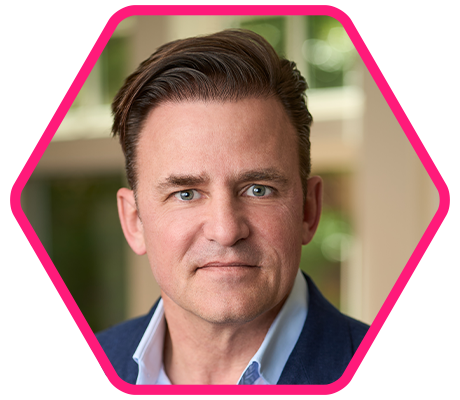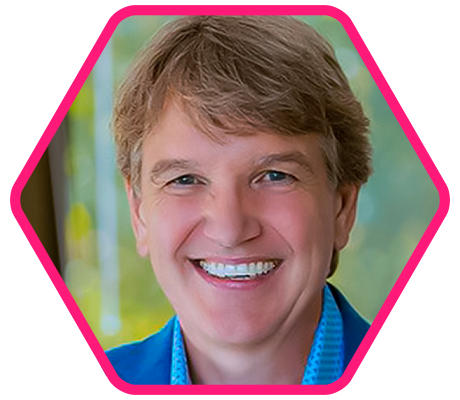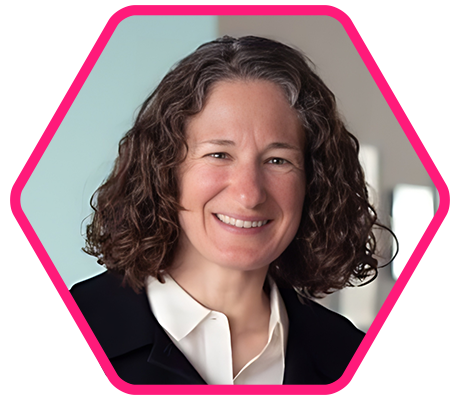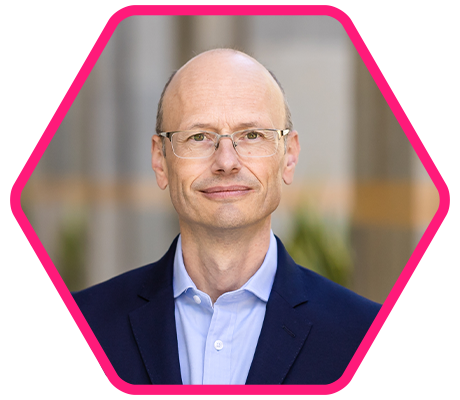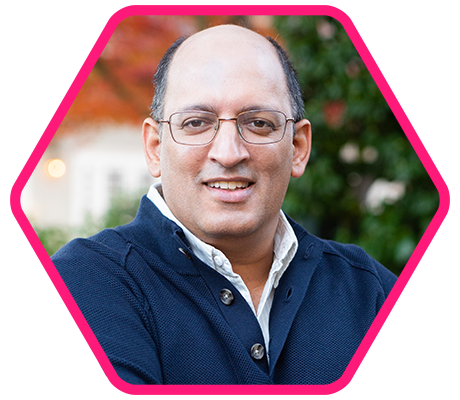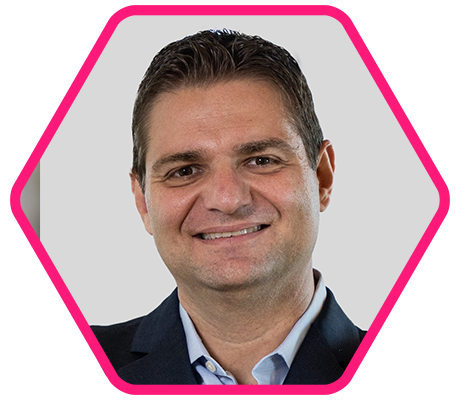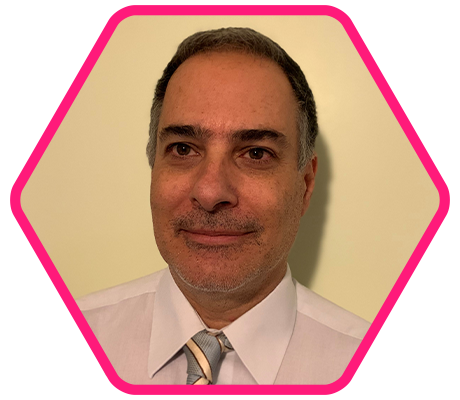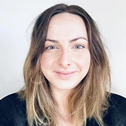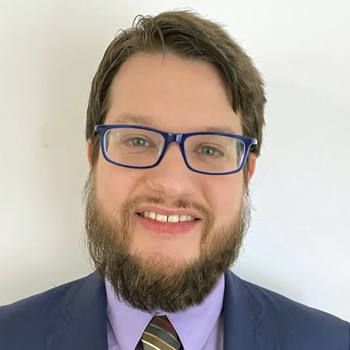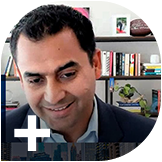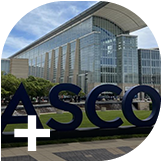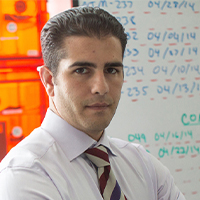Heard on the pipeline: ASCO 2024
Every year, the American Society of Clinical Oncology (ASCO) annual meeting brings together a worldwide community of innovators dedicated to advancing the frontiers of cancer research.
Amidst a wealth of knowledge and experience, pharmaphorum editor-in-chief, Jonah Comstock, was presented with a profound opportunity on the ASCO floor: the passing of the torch to the next generation of oncology experts.
As seasoned professionals reflect on their journeys, they share invaluable insights, lighting the way for those ready to carry the baton in the fight against cancer.
“What advice would you give to a young professional entering the field of oncology today?”
Warner Biddle
Head of commercial affairs, KITE, a Gilead Company
This is a conversation that I’m actually having with my daughter. She's in second year right now at STSU taking a biology and chemistry degree and she's very interested in coming into the field.
And so we're having this conversation right now about what we do in this industry and all the passion that we have, as well as the terrific science. And to your point, just the incredible progress that we've made, but also how much potential there's still left in the oncology field.
So I think there's a lot of motivation, a lot of hunger and desire from a lot of these young scientists to come forward and make a career in oncology. And we do need more support and more help to treat these patients and bring these transformative therapies through the clinical development programme so that we can get them to patients.
Watch the full interview with Warner Biddle here.
Andree Amelsberg
SVP global and US oncology medical affairs, Eisai
What is exciting in oncology is when I think back ten years ago, 20 years ago, 30 years ago and you compare how we can treat patients today with more effective and safer drugs. That's a tremendous progress that we as the medical community, the manufacturers, and others have made on really making an impact and making life better for our patients.
And I think that is what I would tell a younger person entering the oncology space right now: it might be hard work right now, but there's continuous progress over time.
Watch the full interview with Andree Amelsberg here.
Carolyn Sousa
Commercial lead, solid tumours, Johnson & Johnson
Oncologists must remember the patient behind the treatment that they're providing, and that the treatment is much more than just the drug. They need help from a dietary standpoint, they need help with physical therapy, with mental health.
It's really important that they not only stay curious, but also work collaboratively with all of the different allied health professionals that can help make patients' experience of treatment as good as it possibly can be.
Watch the full interview with Carolyn Sousa here.
Paul Burton
Chief medical officer, Amgen
Get strongly scientifically trained. Don't be in a rush to move quickly through a career pathway. Really deeply learn the science, really deeply learn the clinical medicine that you want to go and treat. And the other thing I would say is keep patients always at the centre of everything you do.
This is a huge meeting. There's so much going on here for all of us. The North Star is to help patients live longer, better lives and to help them and their families; that's fundamental to what young physicians should do today.
Watch the full interview with Paul Burton here.
Chris Haqq
Chief medical officer, Elicio Biosciences
The answer that I would give is to not trust only what you see in mice. Of course, we have to look to the animal models to give us the confidence that we need to take an approach now into human patients.
But I always tell my colleagues that they will be the ones who tell me if I gave them the right project or not, because it's the human data that is really the most important. And I think it's very important to remember that mice and humans have some differences and that there can be big surprises.
I've seen before in my career that drugs that looked a little bit too toxic in mice, ended up being quite effective and well tolerated in the human trials, for example, abiraterone, which I worked on in the past. So there's a lot to be said for doing the translational work to take that first step in the clinic.
And I would encourage everyone to take molecules forward that have a sound scientific hypothesis and to ask the human patient experience to tell us the best value and the best place to use those therapies.
It's a great area with a lot of need. It's a great career, really satisfying. So I'd encourage every young investigator to get involved in clinical trials. They're really important to inform us about how we can move the whole field forward.
Michael Petroutsas
US president and head of commercial, Astellas Pharma
I would say be curious. A lot of times we get into oncology because we want to help serve and support patients, but also we fall in love with our programmes. You work in your organisation, I work in mine, and we fall in love with what we have and what we're creating.
But come to ASCO and be curious. See the possibility. I met with a physician earlier today and we talked about the complexities of targeted therapy versus chemo and how do you get to a place where you no longer have to use chemo? And I really turned back and said to myself, look at all the biases I bring to think, is that even possible? Because it's been the standard of care for years. And it just reminded me, you have to be curious.
You have to come to ASCO, listen to the science, be curious, and learn to see how we cannot individually help patients, but only collectively. And that's where great partnerships come into play.
Watch the full interview with Michael Petroutsas here.
Thanos Zomas
Global medical lead for Lymphoma, Takeda
I think there couldn't be a better timing for someone to enter the oncology field. And this is because there's so much hope, so many different treatment solutions and options.
People like myself or even older than me, when we were getting into oncology, we had to face a lot of challenges, a lot of disappointments. And honestly, we had to experience dramatic stories with specific patients. This is not so much the case.
Now we are able to deliver much more curable, efficient, tolerable treatments. And we can see in front of us this hope blooming. So, for example, we can cure more than 90% of childhood leukaemia. Now, that’s a dramatic change. We have a large number of physicians who have been treated for acute leukaemia or even Hodgkin's lymphoma in their teenage years or their childhood.
So this hope is going to continue and I think the new generation of oncologists will be in the best place to serve patients in with cancer now.
Watch the full interview with Thanos Zomas here.
About the authors
Eloise McLennan is the editor for pharmaphorum’s Deep Dive magazine. She has been a journalist and editor in the healthcare field for more than five years and has worked at several leading publications in the UK.
Jonah Comstock is a veteran health tech and digital health reporter. In addition to covering the industry for nearly a decade through articles and podcasts, he is also an oft-seen face at digital health events and on digital health Twitter.
Supercharge your pharma insights: Sign up to pharmaphorum's newsletter for daily updates, weekly roundups, and in-depth analysis across all industry sectors.
Want to go deeper?
Continue your journey with these related reads from across pharmaphorum
Click on either of the images below for more articles from this edition of Deep Dive: Oncology 2024

